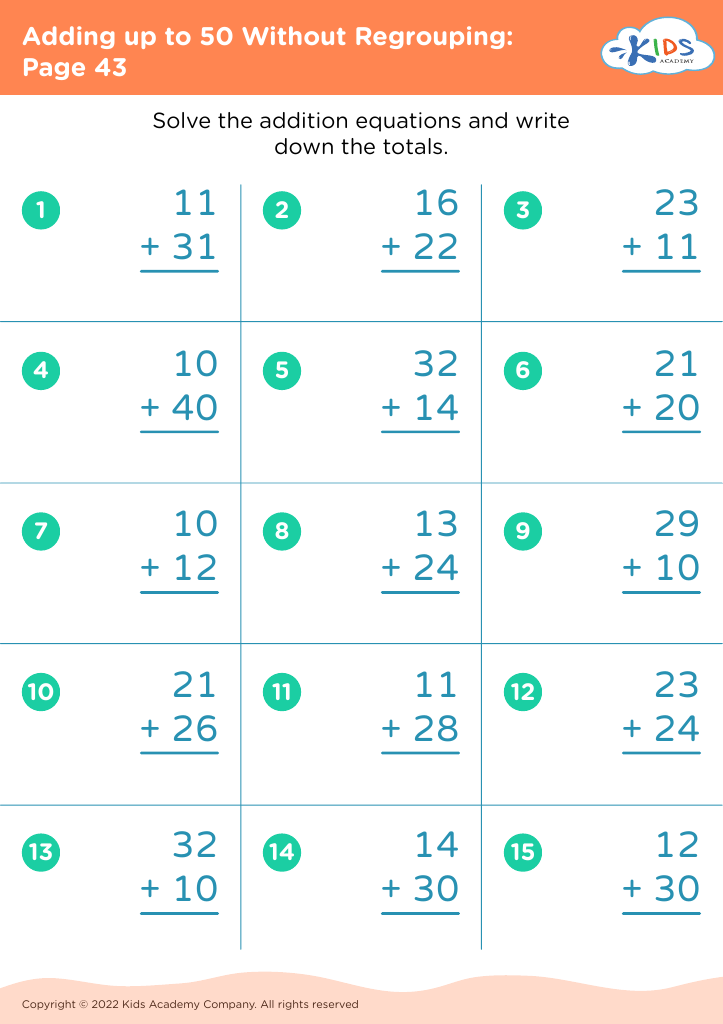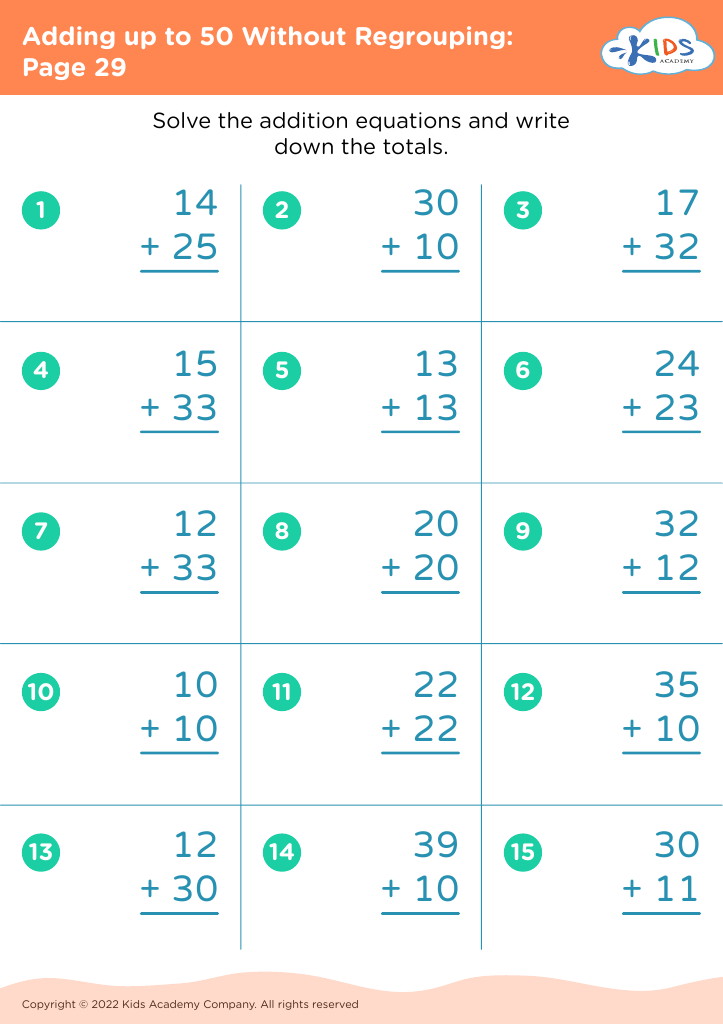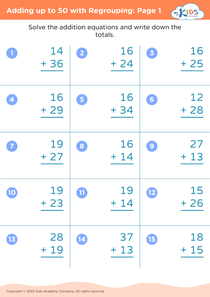Recognizing Patterns Adding up to 50 Without Regrouping Worksheets for Ages 3-7
4 filtered results
-
From - To
Discover our "Recognizing Patterns Adding up to 50 Without Regrouping Worksheets" designed specifically for children ages 3-7. These engaging worksheets help young learners identify and understand numerical patterns, fostering their ability to add without regrouping. Through vibrant illustrations and interactive activities, children will build confidence in their math skills while mastering addition strategies. Parents and educators can easily integrate these printable resources into homeschooling or classroom activities. Ideal for promoting critical thinking and problem-solving, our worksheets make learning fun and approachable. Equip your child with the foundational skills they need for future mathematical success!
Recognizing patterns and mastering addition up to 50 without regrouping are crucial skills for young learners aged 3-7. Early mathematical experiences lay the foundation for future academic success. At this stage, children are naturally inclined to observe patterns, which not only fosters their problem-solving abilities but also enhances their cognitive development. By recognizing patterns, children can make logical connections and understand numerical relationships, making addition more intuitive.
For parents and teachers, encouraging these skills helps nurture a child's confidence and enthusiasm for math, leading to a positive learning experience. When children grasp the concept of adding without regrouping, they gain fluency in basic arithmetic that is essential for more advanced topics in later grades. Furthermore, this practice promotes perseverance and resilience, teaching children to approach challenges with a constructive mindset.
In an increasingly data-driven world, proficiency in numerical skills will be beneficial in everyday life, from budgeting to logical decision-making. Supporting young learners in recognizing patterns and engaging with numbers will also enhance their ability to work collaboratively and articulate their thought processes. Therefore, investing time in these foundational skills is vital for shaping well-rounded individuals prepared for future academic and life challenges.















